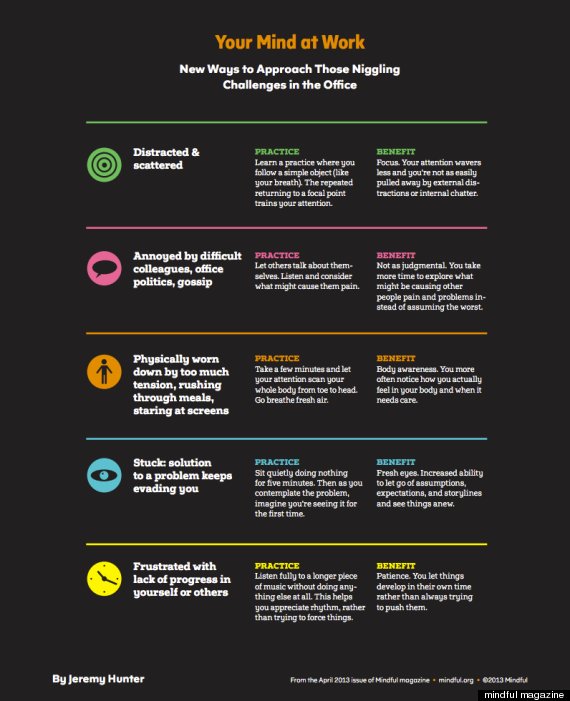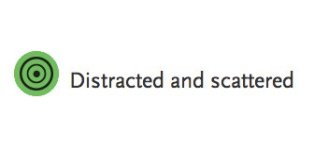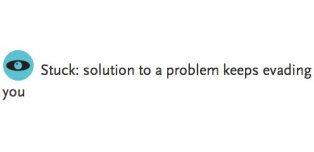Practice: Learn a practice where you follow a simple object (like your breath). The repeated returning to a focal point trains your attention.Benefit: Focus. Your attention wavers less and you're not as easily pulled away by external distractions or internal chatter.Practice: Let others talk about themselves. Listen and consider what might cause them pain.Benefit: Not as judgemental. You take more time to explore what might be causing other people pain and problems instead of assuming the worst.Practice: Take a few minutes and let your attention scan your whole body from toe to head. Go breathe fresh air.Benefit: Body awareness. You more often notice how you actually feel in your body and when it needs care.Practice: Sit quietly doing nothing for five minutes. Then as you contemplate the problem, imagine you're seeing it for the first time.Benefit: Fresh eyes. Increased ability to let go of assumptions, expectations, and storylines and see things anew.Practice: Listen fully to a longer piece of music without doing anything else at all. This helps you appreciate rhythm, rather than trying to force things.Benefit: Patience. You let things develop in their own time rather than always trying to push them.This article also appears in the April 2013 issue of Mindful magazine as part of a package titled "Is Mindfulness Good for Business?"
Offering multiple perspectives from many fields of human inquiry that may move all of us toward a more integrated understanding of who we are as conscious beings.
Pages
▼
Wednesday, February 20, 2013
Mindfulness Practices for Workplace Issues
From Huffington Post. Image created by Jeremy Hunter for Mindful magazine.






No comments:
Post a Comment